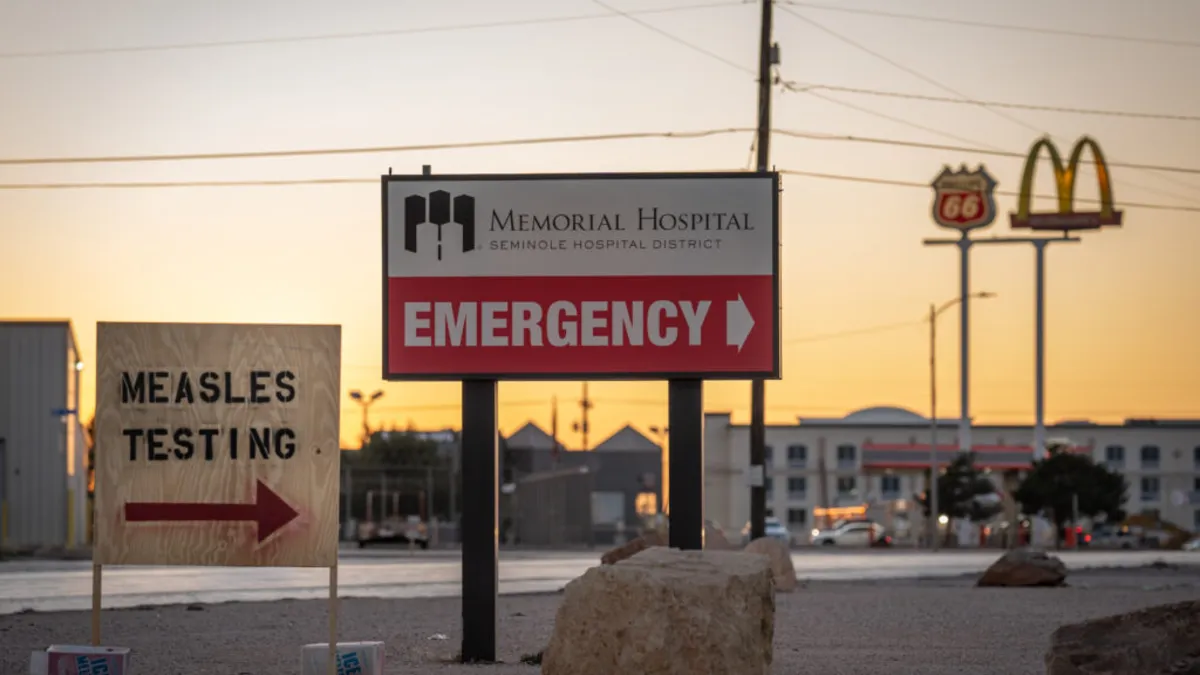
The ongoing measles outbreak that originated in West Texas has now spread into New Mexico and Oklahoma, prompting serious concerns from public health officials. Katherine Wells, the director of public health for the city of Lubbock, warned during a press conference held by the Big Cities Health Coalition that it could take up to a year to fully contain the outbreak. Wells emphasized that the situation remains dire, as transmission continues both locally and to surrounding areas, particularly affecting pockets of unvaccinated individuals.
As of Tuesday, Texas has confirmed a staggering 279 cases of measles, although this figure likely underrepresents the true scale of the outbreak. The epicenter is located in a rural community of Mennonites in west Texas, who traditionally do not vaccinate their children. Alarmingly, only two of the confirmed cases in Texas have received the recommended two doses of the measles-targeting vaccine. Additionally, the outbreak has led to one reported death in Texas, involving an unvaccinated school-aged child.
New Mexico has recorded 38 cases along with one death in an unvaccinated adult, while Oklahoma has reported four confirmed cases, all among unvaccinated individuals. This pattern of spread highlights the challenges that public health officials face in controlling the outbreak, especially in rural areas where access to healthcare is limited.
The implications of this outbreak are significant. If it continues for more than 12 months, the United States risks losing its status as a country that has achieved measles elimination. This status indicates that any cases are either contracted abroad or linked to transmission from someone infected elsewhere. The U.S. achieved this milestone in 2000 but teetered on the brink of losing it during a prolonged outbreak in New York City in 2019.
Wells pointed out that while response teams are working tirelessly to promote vaccination, the uptake has been disappointing. In recent weeks, Lubbock has administered approximately 300 more doses of the measles vaccine than usual, yet this increase is not sufficient to combat the outbreak effectively. Public health officials stress that a consistent message about the importance of vaccination is critical to overcoming resistance among unvaccinated populations.
Mixed messaging regarding vaccinations could be contributing to the difficulties in containing the outbreak. Phil Huang, director of Dallas County Health and Human Services, noted that some public figures have undermined vaccination efforts by promoting alternative treatments for measles. Notably, Health and Human Services Secretary Robert Kennedy Jr., a long-time vaccine critic, has advocated for treatments such as vitamin A and cod liver oil instead of prevention through vaccination.
While vitamin A has been shown to improve survival rates in malnourished children with measles in developing countries, it is not a preventative measure. Huang emphasized the importance of a unified message from all levels of public health, stating, "We need to reinforce the message about the importance of vaccines as the primary method to prevent outbreaks like this."
Simbo Ige, Chicago’s commissioner of public health, shared insights from a significant measles outbreak last year that originated in a migrant shelter. Over the course of that outbreak, her department administered 30,000 doses of the vaccine, reiterating that vaccination was the key factor in achieving measles elimination, rather than alternative treatments.
As the outbreak continues to unfold, public health officials urge communities to prioritize vaccination and adhere to consistent messaging to safeguard public health and prevent further spread of measles.